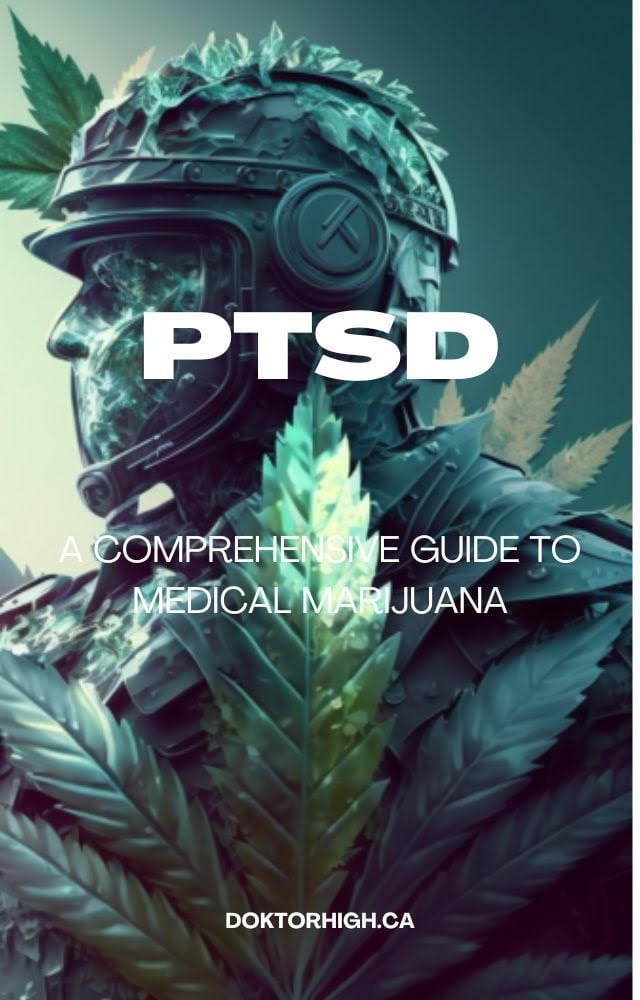

Post-traumatic stress disorder (PTSD) or Post Traumatic Stress Syndrome is defined as debilitating mental health condition that can occur after experiencing or witnessing a traumatic event.
Common symptoms include flashbacks, nightmares, and feelings of anxiety or hypervigilance. Traditional post traumatic stress disorder treatment includes therapy and medication, but many patients experience inadequate symptom relief or intolerable side effects. In recent years, there has been growing interest in using medical marijuana as an alternative treatment option for PTSD. In this article, we will explore the research behind medical marijuana and its potential role in managing PTSD.
One of the primary compounds found in medical marijuana is tetrahydrocannabinol (THC), which has been studied for its potential effects on PTSD. A 2014 study published in the Journal of Psychoactive Drugs found that PTSD symptoms improved in patients who used marijuana, with 75% reporting a reduction in symptoms (Greer et al., 2014). Additionally, a 2019 study published in the Journal of Affective Disorders found that patients with PTSD who used medical marijuana reported a greater reduction in symptoms compared to those who did not use marijuana (Bonn-Miller et al., 2019).
Cannabidiol (CBD) is another compound found in medical marijuana that has been studied for its potential effects on PTSD. A 2018 study published in the Journal of Clinical Psychiatry found that CBD reduced anxiety and improved sleep in patients with PTSD (Elms et al., 2018). Additionally, a 2020 study published in the Journal of Psychopharmacology found that CBD improved symptoms of hyperarousal and avoidance in patients with PTSD (Skosnik et al., 2020).
The endocannabinoid system (ECS) is a complex signaling system in the body that plays a role in regulating various physiological processes, including mood and anxiety. Some researchers believe that medical marijuana may work by interacting with the ECS to reduce symptoms of PTSD. A 2019 study published in the Journal of Dual Diagnosis found that medical marijuana reduced symptoms of PTSD and improved quality of life in patients with co-occurring PTSD and substance use disorder (Feingold et al., 2019). The authors concluded that medical marijuana may be a viable treatment option for patients with comorbid PTSD and substance use disorder.
It is important to note that medical marijuana is not without its potential side effects. Common side effects include drowsiness, dizziness, and dry mouth, and there is some evidence to suggest that long-term use of medical marijuana may have negative effects on cognitive function. Additionally, medical marijuana may interact with other medications, so patients should always consult with their healthcare provider before starting treatment.
Medical marijuana is a promising treatment option for patients with PTSD who do not respond to traditional therapies or experience intolerable side effects. Clinical studies have shown that both THC and CBD can improve symptoms of PTSD, and some researchers believe that medical marijuana works by interacting with the ECS. However, medical marijuana is not without its potential side effects, and further research is needed to fully understand its safety and efficacy. As with any medical treatment, patients should consult with their healthcare provider to determine if medical marijuana is a suitable option for their individual needs.
References:
Bonn-Miller, M. O., Babson, K. A., & Vandrey, R. (2019). Using cannabis to help you sleep: heightened frequency of medical cannabis use among those with PTSD. Journal of Affective Disorders, 248, 227-232.
Elms, L., Shannon, S., Hughes, S., & Lewis, N. (2018). Cannabidiol in the treatment of post-traumatic stress disorder: a case series. Journal of Clinical Psychiatry, 79(4).
Feingold, D., Goor-Aryeh, I., & Weizman, A. (2019). Medical cannabis for co-occurring PTSD and substance use disorder: a retrospective evaluation of outpatient treatment. Journal of Dual Diagnosis, 15(2), 107-115.
Greer, G. R., Grob, C. S., & Halberstadt, A. L. (2014). PTSD symptom reports of patients evaluated for the New Mexico Medical Cannabis Program. Journal of Psychoactive Drugs, 46(1), 73-77.
